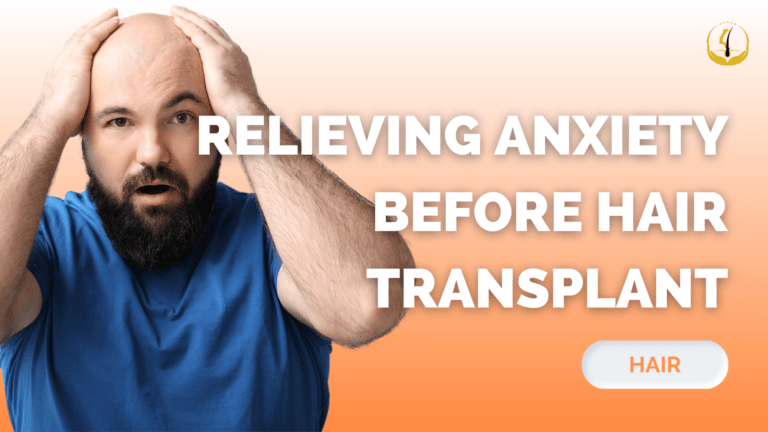Embarking on a hair transplant journey can be a transformative experience, offering a lasting solution to the challenges of baldness. Despite its minimal invasiveness, anxiety is a common companion for many individuals contemplating the surgery. At GLOJAS, our focus is not just on providing excellent hair transplant results but also on ensuring you navigate this journey with confidence and peace of mind.
Understanding Hair Transplant as a Safe and Effective Procedure
Hair Transplant surgery, known for its minimal pain, stands as a safe and effective cosmetic procedure. To fully embrace the transformative power of hair restoration, it’s crucial to address any anxiety or fear associated with surgeries. GLOJAS, home to the best hair transplant surgeons, offers a reassuring environment and a commitment to your comfort throughout the process.
Facing the Fear: Anxiety and Baldness
Baldness, a result of excessive hair loss within a short timeframe, often becomes a source of worry for many. Seeking a permanent solution, individuals turn to hair transplant treatments, and understandably, questions and concerns may arise.
FAQs to Ease Your Pre-Transplant Anxiety:
Q1: Is hair transplant surgery painful?
A: Hair transplant surgery is minimally invasive and almost pain-free. Surgeons often provide medications to control anxiety, ensuring a comfortable experience.
Q2: What happens on the scheduled surgery day?
A: On the surgery day, the surgeon discusses the treatment plan, marks the hairline, and administers local anesthesia. Medications may be given to ease anxiety, and the actual transplant begins after the head is numb.
Q3: How does the transplant procedure start?
A: The transplant begins with the application of local anesthesia, making the head numb. GLOJAS surgeons ensure a comfortable experience, allowing patients to relax and engage in activities like watching TV or listening to music during the procedure.
Q4: What about anxiety during the transplant?
A: GLOJAS understands patient anxiety and takes steps to alleviate concerns. Effective antibiotics are prescribed to minimize infection risks. The focus is on providing a pain-free and comfortable experience.
Q5: What happens after the transplant?
A: Patience is key after the transplant. The transplanted hair takes time to grow, with full and proper growth typically occurring 8 to 12 months after the surgery. GLOJAS emphasizes post-transplant care and guidance for optimal results.
Q6: How can I ease anxiety about the surroundings and staff behavior?
A: Choosing GLOJAS ensures a professional and supportive environment. Our expert team prioritizes patient comfort and addresses any concerns, creating a positive experience.
Q7: Are there medications to manage anxiety?
A: Yes, surgeons may prescribe medications to control anxiety before and during the transplant, ensuring a stress-free experience.
Q8: What is the duration of the transplant procedure?
A: The duration varies, but GLOJAS surgeons work efficiently to minimize the time. Patients can engage in relaxing activities during the procedure.
Q9: Will I experience discomfort after the surgery?
A: GLOJAS surgeons prioritize a pain-free experience. Post-surgery, any discomfort is managed with appropriate care and guidance.
Q10: How can I consult for a hair transplant at GLOJAS?
A: Consultation at GLOJAS for a hair transplant is free. Our expert team is ready to guide you through the process, ensuring you make informed decisions for your hair restoration journey.

